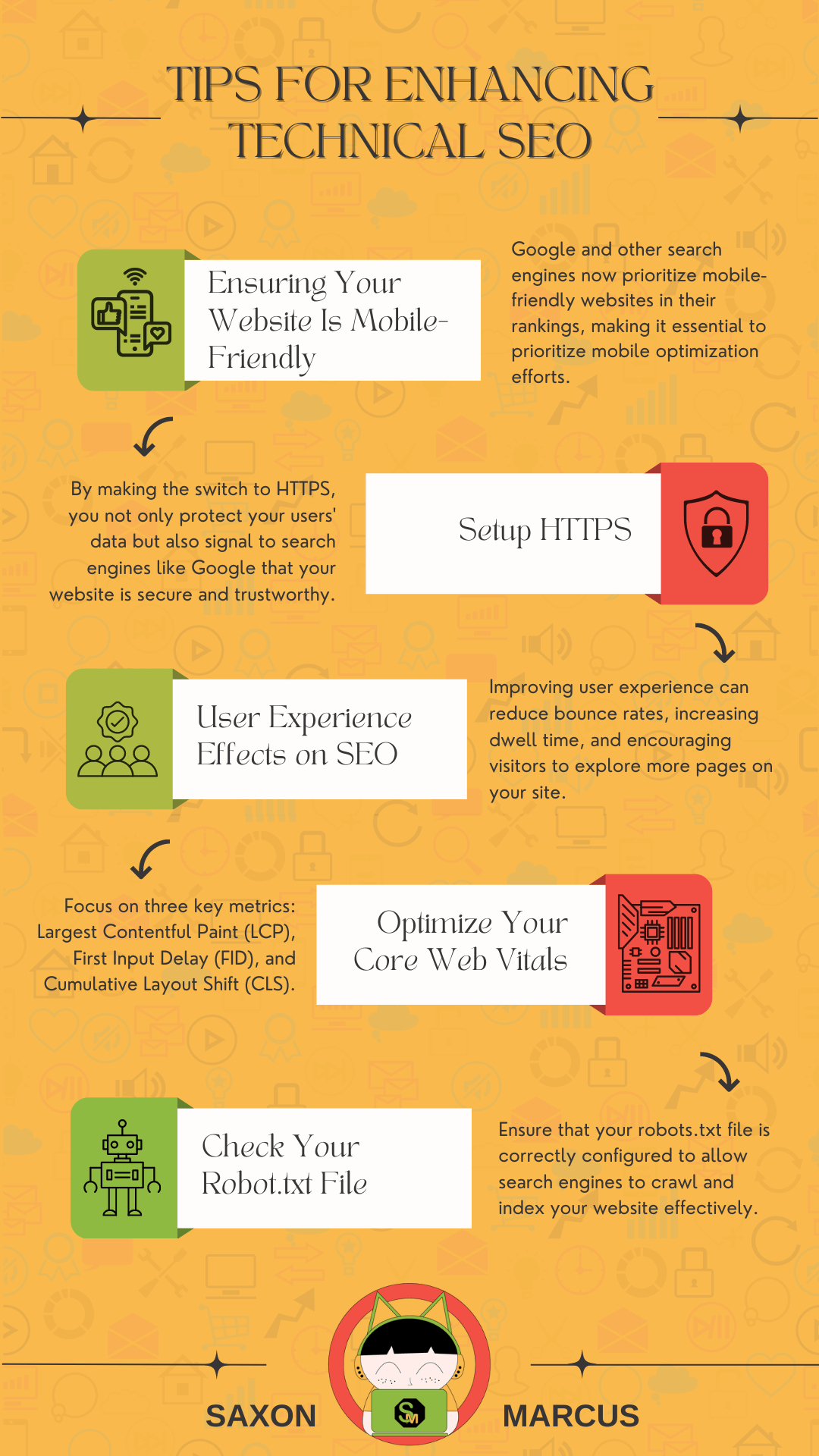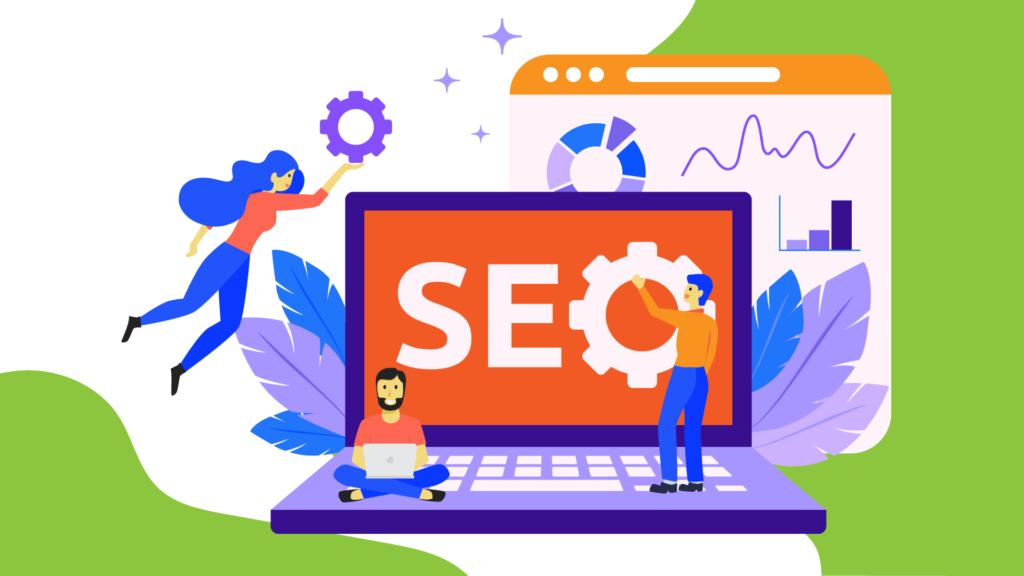
SEO for beginners can be intimidating, but it’s a critical component of any successful website. SEO helps your site rank higher in search engine results pages, which means more traffic and potential customers.
However, there are many factors that go into SEO, from keyword research to link building, and it can be overwhelming to know where to start. With so many terms, strategies, and algorithms to navigate, it’s easy to feel lost.
Fear not, as this seo tutorial for beginners guide is here to demystify the world of SEO and help you understand the fundamental principles that will set you on the path to mastering search engine optimization.
From keyword research to on-page optimization and link building, this guide will break down complex concepts into simple and actionable steps, empowering you to enhance your website’s visibility and drive organic traffic. Let’s dive in and unlock the secrets of SEO together!
WHAT IS SEO AND WHY DOES A GUIDE ABOUT SEO FOR BEGINNERS MATTERS
Search Engine Optimization (SEO) is a powerful tool that can significantly impact the visibility and ranking of your website on search engine results pages. In simple terms, SEO involves optimizing your website’s content and digital marketing agency structure in a way that search engines like Google can easily understand and index.
By following best practices in SEO for beginners, you can improve your website’s chances of being seen by users who are actively searching for information, products, or services related to your business.
Understanding the importance of SEO for beginners is crucial for any online business or website owner. In today’s digital world, where competition is fierce and attention spans are short, appearing on the first page of search results can make a world of difference in driving traffic and attracting potential customers. SEO helps you increase organic traffic to your site, build credibility and authority in your industry, and ultimately drive conversions and sales.
By learning the fundamentals of SEO and implementing effective strategies, you can unlock the true potential of your website and reach a wider audience online. This beginner’s guide to fearless optimization will equip you with the knowledge and tools needed to navigate the complex world of SEO and take your online presence to new heights.
SEO FOR BEGINNERS BASICS: KEYWORDS, META TAGS, AND CONTENT
Understanding the basics of SEO is crucial for anyone looking to improve their website’s visibility and ranking on search engines. Keywords, meta tags, and content play a pivotal role in optimizing your website for search engines.
Keywords are the foundation of SEO and are the terms or phrases that users enter into search engines to find relevant information. Conducting thorough keyword research to identify the most relevant and high-performing keywords in your industry is essential for driving organic traffic to your website.
Meta tags, including meta titles and meta descriptions, provide search engines with information about the content of your web pages. Optimizing these meta tags with relevant keywords and compelling descriptions can improve your click-through rates in search engine results pages.
Content is king in the world of SEO. High-quality, relevant, and engaging content not only attracts users to your website but also signals to search engines that your website is a valuable resource for users. Creating content marketing templates that incorporates your target keywords naturally and provides value to your audience is key to successful SEO optimization.
By mastering the basics of SEO for beginners, including keywords, meta tags, and content, you can lay a solid foundation for improving your website’s visibility and driving organic traffic to your site.
UNDERSTAND WHAT SEARCHERS WANT TO SEE FOR A QUERY
Understanding what searchers want to see for a query is a crucial aspect of mastering search engine optimization. When users type a query into a search engine, they have specific intentions and expectations.
To succeed in SEO for beginners, it’s essential to dive into the mindset of your target audience and tailor your content to meet their needs effectively. This involves conducting thorough keyword research to identify the terms and phrases your audience is using to search for information related to your industry or niche.
By understanding searchers’ intent, you can create content that not only ranks well in search engine results but also resonates with your target audience, driving traffic and engagement to your website. Remember, SEO is not just about optimizing for search engines; it’s about delivering valuable, relevant content that meets the needs of your users.
By aligning your content with what searchers want to see for a specific query, you can enhance your website’s visibility, credibility, and ultimately, your online success.
ON-PAGE OPTIMIZATION: CRAFTING SEO-FRIENDLY CONTENT
Crafting SEO-friendly content is a crucial aspect of on-page optimization. When creating content for your website, it’s essential to keep both your target audience and search engines in mind. Start by conducting keyword research to identify relevant terms and phrases that your audience is searching for. Integrate these keywords naturally throughout your content, including in titles, headings, meta descriptions, and body text.
In addition to keywords, focus on creating high-quality, engaging content that provides value to your readers. This can include informative blog posts, how-to guides, product descriptions, and more. Make sure your content is well-organized and easy to read, with clear headings and subheadings to help both users and search engines understand the structure of your page.
Keyword stuffing not only provides a negative user experience but it also will get your site penalized by search engines. Rather than injecting your focus keyword in as many places as possible, use your focus keyword only where it makes sense.
Optimizing your content also involves paying attention to technical elements such as page load speed, mobile-friendliness, and internal linking. Ensure that your website is optimized for performance and usability across devices to provide a seamless experience for your visitors.
By crafting SEO-friendly content that is both user-focused and optimized for search engines, you can improve your website’s visibility and attract more organic traffic. Remember, creating valuable and relevant content is key to successful on-page optimization and overall SEO for beginners strategy.
OFF-PAGE OPTIMIZATION: BUILDING BACKLINKS AND IMPROVING DOMAIN AUTHORITY
Off-page optimization is a crucial aspect of SEO for beginners that focuses on factors outside of your website that influence your search engine rankings. One of the key elements of off-page optimization is building backlinks, which are links from other websites that point to your site. Backlinks act as votes of confidence in the eyes of search engines, indicating that your content is valuable and authoritative.
To build backlinks effectively, focus on creating high-quality, relevant content that other websites will want to link to. Guest posting on reputable sites, reaching out to influencers in your industry, and participating in online communities are great ways to earn backlinks. Remember, the quality of backlinks is more important than the quantity, so prioritize getting links from reputable sources.
Another important aspect of off-page optimization is improving domain authority. Domain authority is a metric that search engines use to determine the credibility and authority of your website. The higher your domain authority, the more likely your site is to rank well in search results.
To improve your domain authority, focus on building a strong backlink profile, creating high-quality content, and engaging with your audience on social media. By consistently working to build backlinks and improve your domain authority, you can boost your site’s visibility and rankings in search engine results pages.

TECHNICAL SEO: ENHANCING WEBSITE PERFORMANCE FOR SEARCH ENGINES
Technical SEO plays a crucial role in optimizing your website for search engines. It involves making sure that search engine crawlers can easily access and understand your website’s content. This aspect of SEO focuses on factors such as website speed, mobile-friendliness, crawlability, indexing, and site structure.
One key component of technical SEO is optimizing website speed. A fast-loading website not only provides a better user experience but also positively impacts your search engine rankings. Search engines prioritize websites that load quickly because they offer a smoother browsing experience for users.
Mobile-friendliness is another important aspect of technical SEO for beginners. With the increasing use of mobile devices for internet browsing, search engines give preference to websites that are optimized for mobile. Ensuring that your website is responsive and displays properly on various devices is essential for improving your search engine rankings.
Crawlability and indexing are also vital for technical SEO. You need to make sure that search engine crawlers can easily navigate through your website and index its content. This involves creating a clear site structure, using internal linking effectively, and optimizing your robots.txt file to guide search engines on which pages to crawl.
Technical SEO is all about enhancing your website’s performance for search engines. By focusing on factors like website speed, mobile-friendliness, crawlability, and indexing, you can improve your website’s visibility and rankings in search engine results pages.
Technical SEO For Beginners Tip #1: Ensuring Your Website Is Mobile-Friendly
In today’s digital age, mobile optimization is no longer a luxury but a necessity for any website looking to thrive in search engine rankings. With more users accessing the internet through mobile devices than ever before, ensuring that your website is mobile-friendly has become crucial for SEO for beginners success.
Mobile SEO involves optimizing your website to provide a seamless and user-friendly experience for visitors accessing it on their smartphones or tablets. This includes responsive web design, which ensures that your site adapts and displays correctly on various screen sizes and resolutions.
Google and other search engines now prioritize mobile-friendly websites in their rankings, making it essential to prioritize mobile optimization efforts. By ensuring that your website is fast, easy to navigate, and visually appealing on mobile devices, you can improve user experience, increase engagement, and ultimately boost your search engine visibility.
Incorporating mobile SEO best practices, such as optimizing for local search, leveraging mobile-specific keywords, and improving page loading speed, can help you stay ahead in the competitive online landscape and attract more organic traffic to your site. Remember, in the world of SEO, mobile-friendliness is key to unlocking higher rankings and reaching a broader audience.
Technical SEO For Beginners Tip #2: Setup HTTPS
Setting up HTTPS is a crucial step in improving your website’s SEO performance. HTTPS, which stands for Hypertext Transfer Protocol Secure, ensures that data exchanged between the user’s browser and your website is encrypted and secure. Not only does HTTPS enhance the security of your website, but it also plays a significant role in boosting your search engine rankings.
To implement HTTPS on your website, you need to obtain an SSL (Secure Sockets Layer) certificate from a trusted certificate authority. This certificate authenticates the identity of your website and encrypts data transmitted between users and your site. Once you have acquired the SSL certificate, you can configure your website to serve content over HTTPS.
By making the switch to HTTPS, you not only protect your users’ data but also signal to search engines like Google that your website is secure and trustworthy. This can positively impact your SEO efforts by potentially improving your search rankings and increasing user trust and confidence in your website. Transitioning to HTTPS is a simple yet powerful way to enhance both your website’s security and its SEO performance.
Technical SEO For Beginners Tip #3: User Experience Effects on SEO
When it comes to Search Engine Optimization (SEO), user experience plays a crucial role in determining the success of your website in ranking higher on search engine results pages. User experience encompasses various elements that impact how visitors interact with your website, such as page load speed, mobile responsiveness, easy navigation, quality content, and overall usability.
Improving user experience can positively influence your SEO efforts by reducing bounce rates, increasing dwell time, and encouraging visitors to explore more pages on your site. Search engines like Google prioritize websites that provide a seamless and informative experience for users, leading to higher rankings in search results.
To enhance user experience for better SEO performance, focus on creating high-quality, relevant content that meets the needs of your target audience. Ensure your website is mobile-friendly and loads quickly on all devices to cater to users accessing your site from smartphones and tablets. Streamline navigation by organizing content logically and using clear calls-to-action to guide visitors through your site.
By prioritizing user experience and aligning it with SEO for beginners strategies, you can create a website that not only attracts more organic traffic but also keeps visitors engaged and satisfied with their online experience.
Technical SEO For Beginners Tip #4: Optimize Your Core Web Vitals
Optimizing your core web vitals is crucial for improving your website’s performance and user experience. Core web vitals are a set of specific factors that Google considers important in a webpage’s overall user experience, including loading speed, interactivity, and visual stability. To optimize your core web vitals, you should focus on three key metrics: Largest Contentful Paint (LCP), First Input Delay (FID), and Cumulative Layout Shift (CLS).
Largest Contentful Paint (LCP) measures how quickly the main content of a webpage loads. To improve LCP, optimize your images and videos, minimize server response times, and utilize browser caching.
First Input Delay (FID) evaluates the responsiveness of a webpage when a user interacts with it for the first time. To enhance FID, minimize unnecessary JavaScript execution, defer non-critical third-party scripts, and utilize browser preloading techniques.
Cumulative Layout Shift (CLS) measures the visual stability of a webpage by analyzing unexpected layout shifts during page loading. To reduce CLS, ensure that all elements have predefined sizes, avoid inserting new content above existing content, and use CSS animations wisely.
By optimizing these core web vitals, you can enhance your website’s user experience, improve its search engine rankings, and attract more organic traffic.
Technical SEO For Beginners Tip #5: Check Your Robot.txt File
Checking your robots.txt file is an essential step in mastering search engine optimization (SEO) for your website. The robots.txt file is a text file that tells search engine crawlers which pages or files they can or cannot request from your site. It is crucial to ensure that your robots.txt file is correctly configured to allow search engines to crawl and index your website effectively.
By checking and optimizing your robots.txt file, you can control how search engines access your site’s content, ensuring that your most important pages are being crawled and indexed. This simple step can have a significant impact on your website’s visibility and performance in search engine results.
Technical SEO For Beginners Tip #6: Common Technical Seo Issues & Best Practices
One of the key aspects of mastering search engine optimization (SEO) is understanding and addressing common technical SEO issues. Technical SEO focuses on optimizing the infrastructure of a website to improve its search engine visibility. One common issue is improper website indexing, where search engines struggle to crawl and index your site’s pages effectively. To address this, ensure your website has a sitemap that lists all pages, and use tools like Google Search Console to monitor indexing status.
Another common technical SEO issue is slow page speed, which can negatively impact user experience and search rankings. To improve page speed, optimize images, reduce server response time, and leverage browser caching. Additionally, ensure your website is mobile-friendly, as mobile responsiveness is now a crucial ranking factor.
Implementing best practices such as utilizing schema markup, optimizing meta tags, creating SEO-friendly URLs, and fixing broken links can also enhance your website’s SEO performance. By identifying and resolving technical SEO issues while following best practices, beginners can lay a solid foundation for mastering SEO and improving their website’s visibility in search engine results.
LOCAL SEO: TARGETING LOCAL AUDIENCES AND OPTIMIZING FOR LOCAL SEARCHES
Local SEO is a powerful tool for businesses looking to target specific geographic areas and connect with local audiences. Optimizing your website and online presence for local searches can significantly boost your visibility in local search results and drive more foot traffic to your physical locations.
One of the key elements of local SEO is ensuring that your business information is accurate and consistent across all online platforms, including your website, Google My Business listing, and other online directories. This includes your business name, address, phone number, and website URL.
Another important aspect of local SEO is optimizing your website content with local keywords and phrases that are relevant to your target audience. This can help your website rank higher in local search results when users are looking for products or services in your area.
Additionally, building local citations and backlinks from reputable local websites can also improve your local search rankings and credibility with search engines.
By implementing a comprehensive local SEO for beginners strategy, businesses can increase their online visibility, attract more local customers, and ultimately drive more sales and revenue.
UTILIZING SEO TOOLS AND ANALYTICS TO TRACK AND IMPROVE SEO PERFORMANCE
SEO tools and analytics play a crucial role in optimizing your website for search engines. These tools provide valuable insights into your website’s performance, keyword rankings, backlink profiles, and much more. By utilizing these tools effectively, you can track your progress, identify areas for improvement, and make data-driven decisions to boost your SEO for beginners efforts.
One of the most popular SEO tools is Google Analytics, which provides in-depth data on your website traffic, user behavior, and conversions. By analyzing this data, you can gain valuable insights into how users interact with your site and identify opportunities to enhance the user experience.
Another essential tool is Google Search Console, which helps you monitor your site’s presence in Google search results. You can track your site’s performance, identify indexing issues, and optimize your content for better visibility in search results.
Keyword research tools like SEMrush and Ahrefs are also invaluable for identifying relevant keywords, analyzing competitor strategies, and tracking keyword rankings. By incorporating these tools into your SEO strategy, you can optimize your content for high-performing keywords and drive organic traffic to your site.
In addition to these tools, there are many other SEO analytics tools available that can help you track and improve your SEO performance. By leveraging these tools effectively, you can unlock the secrets of SEO and achieve fearless optimization for your website.
COMMON SEO MISTAKES TO WATCH OUT FOR IN YOUR OPTIMIZATION EFFORTS
When delving into the realm of SEO for beginners, it’s crucial to be aware of common pitfalls that can hinder your optimization efforts. By steering clear of these mistakes, you can ensure that your SEO strategy remains effective and yields positive results.
One common mistake to avoid is keyword stuffing. While keywords play a vital role in SEO, overloading your content with an excessive amount of keywords can actually harm your rankings. Focus on creating high-quality, engaging content that naturally incorporates relevant keywords rather than forcefully inserting them.
Another pitfall to watch out for is neglecting the importance of mobile optimization. With the majority of internet users accessing websites via mobile devices, ensuring that your site is mobile-friendly is essential for SEO for beginners. Failure to optimize your site for mobile users can lead to decreased visibility and lower rankings in search engine results.
Additionally, overlooking the significance of link building can be detrimental to your SEO efforts. Building a strong network of quality backlinks from reputable sites can significantly boost your site’s authority and visibility. Be sure to prioritize link building as part of your SEO strategy to enhance your site’s overall performance.
By being mindful of these common SEO for beginners mistakes and taking proactive steps to avoid them, you can set yourself on the path to fearless optimization with a seo marketing agency and unlock the secrets of SEO success.
DEVELOPING AN SEO STRATEGY AND CREATE A COMPREHENSIVE SEO PLAN FOR YOUR WEBSITE.
Developing a solid SEO strategy is crucial for any website looking to improve its visibility and drive organic traffic. By following a structured approach, you can create a comprehensive SEO for beginners plan that aligns with your business goals and targets the right audience effectively.
Set Clear Objectives
Begin by defining your SEO for beginners objectives. Whether it’s increasing website traffic, improving search engine rankings, or boosting online sales, your goals will shape the direction of your SEO strategy.
Conduct Keyword Research
Identify relevant keywords and phrases that your target audience is searching for. Use tools like Google Keyword Planner or SEMrush to discover high-traffic keywords with low competition.
Optimize On-Page Elements
Enhance your website’s on-page elements, including meta titles, meta descriptions, headers, and content. Ensure that your content is high-quality, engaging, and optimized for your target keywords.
Build Quality Backlinks
Backlinks are crucial for SEO success. Focus on acquiring high-quality backlinks from reputable websites in your industry. Guest posting, influencer outreach, and content marketing are effective strategies for link building.
Monitor Performance
Regularly track and analyze your website’s performance using tools like Google Analytics and Google Search Console. Monitor key metrics such as organic traffic, keyword rankings, and conversion rates to assess the effectiveness of your SEO strategy.
By following these search engine optimization for beginners and continuously optimizing your SEO strategy, you can unlock the secrets of SEO and drive sustainable growth for your website. Remember, SEO is an ongoing process, so stay proactive and adaptable to the ever-evolving search landscape.

CONCLUSION
We hope this seo tutorial for beginners has provided you with valuable insights and tools to fearlessly optimize your online presence.
Understanding how search engine optimization works is essential for any website owner or digital marketer looking to increase their visibility and reach online. By following the tips and strategies outlined in this post, you can begin to unlock the secrets of SEO and improve your website’s ranking and performance.
Stay fearless in your optimization efforts, and watch your online presence soar to new heights. Keep learning, keep optimizing, and keep climbing those search engine rankings!



